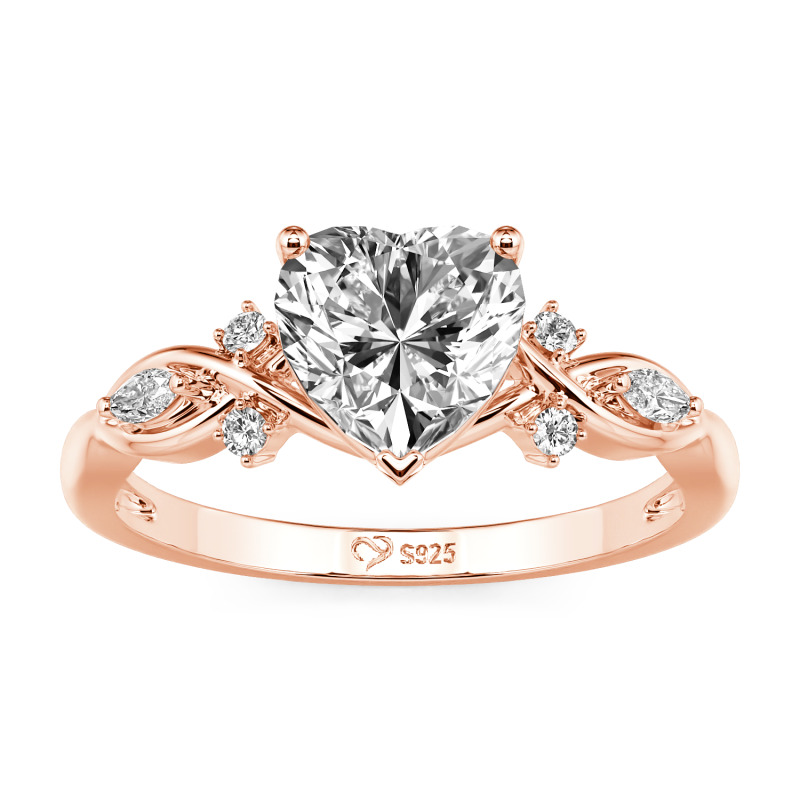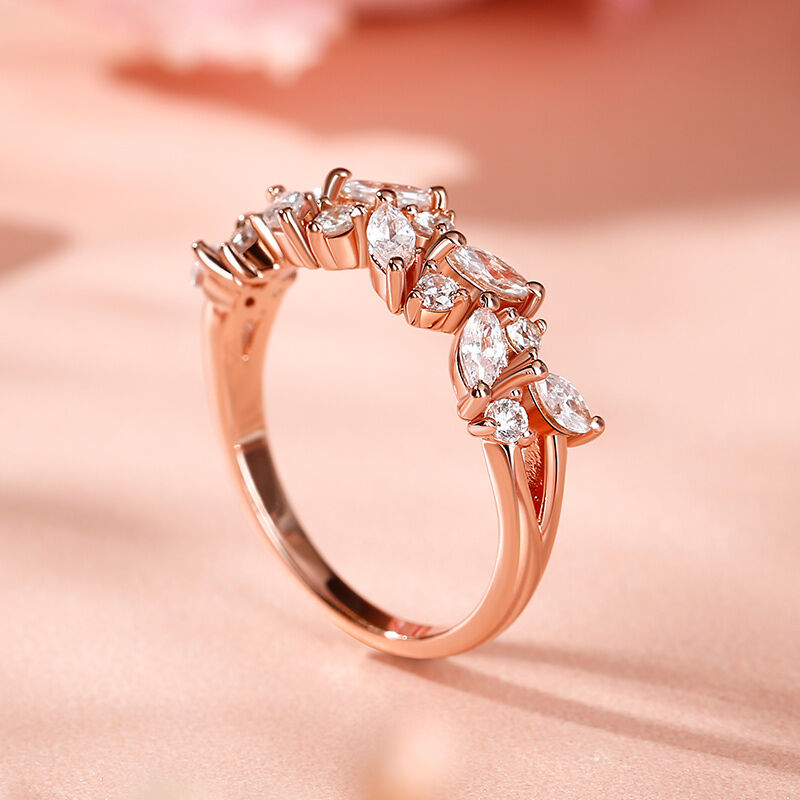14k vs 18k Rose Gold for Engagement Ring
 14k rose gold is the most popular choice for engagement rings in the United States, and for good reason. It strikes an excellent balance between durability, color, and value. Which one do you choose 14K vs 18K rose gold for engagement ring?
14k rose gold is the most popular choice for engagement rings in the United States, and for good reason. It strikes an excellent balance between durability, color, and value. Which one do you choose 14K vs 18K rose gold for engagement ring?
Gold is naturally soft. To make it suitable for jewelry—especially a piece you wear every day like an engagement ring—it must be alloyed, or mixed, with other metals. The karat number simply tells you the percentage of pure gold present:
24k Gold: 100% pure gold. Too soft for jewelry.
18k Gold: 75% pure gold (18 parts gold, 6 parts alloy).
14k Gold: 58.3% pure gold (14 parts gold, 10 parts alloy).
Because 14k gold has a higher percentage of stronger alloy metals (over 41%), it is significantly harder and more scratch-resistant than 18k gold. This makes it ideal for those who lead active lifestyles or prefer not to worry constantly about their ring.
With a higher gold content and lower alloy percentage, 18k is much less likely to cause allergic reactions than 14k, making it ideal for sensitive skin. The higher purity of gold lends 18k a distinct, richer glow and a slightly softer, more subtle pink tone compared to the deeper hue of 14k. Due to the higher gold content, 18k is softer and more prone to scratching, denting, and bending. Expect 18k rose gold to be more expensive than 14k, reflecting the higher percentage of pure gold used.
Rose gold has undergone a stunning resurgence, moving from a vintage favorite to the modern metal of choice for countless couples. Its warm, romantic blush flatters every skin tone and adds a touch of unique elegance to any engagement ring setting.

